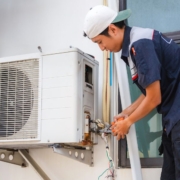Do You Tip AC Repair Guy
Hiring an HVAC professional to repair or service an air conditioning unit is a common home maintenance activity. Many homeowners wonder whether it is appropriate to tip an AC repair technician. Understanding industry practices, service types, and expectations can help homeowners make informed decisions.
Standard Practices in the HVAC Industry
Tipping is not a mandatory requirement in the HVAC industry. Unlike restaurant or hospitality services, HVAC technicians typically earn a fixed hourly rate or salary. Their payment includes labor, service fees, and sometimes travel costs. Therefore, customers are not obligated to provide a tip for routine repairs or maintenance.
Many HVAC companies have policies regarding gratuity. Some explicitly request that customers do not tip, while others leave the decision to the homeowner. It is advisable to check with the company if unsure. Even without a tip, showing appreciation through polite acknowledgment or positive reviews is common and valued.
When Tipping May Be Appropriate
Tipping may be considered in certain situations. For example, if the technician goes above and beyond, such as completing emergency repairs outside of regular hours, providing extra service, or handling complex problems efficiently, a tip can be a way to show gratitude.
The amount of the tip varies depending on the service complexity, location, and duration. Typical tips range from $10 to $50 per service call. For extensive repair work that takes several hours, tipping may be adjusted proportionally. In some cases, homeowners offer beverages or snacks as a gesture of appreciation instead of cash.
Alternatives to Tipping
Homeowners can also show appreciation through non-monetary methods. Leaving a positive online review or providing a written recommendation benefits the technician’s professional reputation. Some companies offer referral programs or customer loyalty incentives, which can indirectly reward the technician’s service.
Expressing gratitude verbally is also effective. Clear communication, polite interaction, and acknowledgment of the technician’s efforts contribute to a positive customer-service relationship. Maintaining a good rapport can also ensure priority scheduling for future service needs.
Factors That Influence Tipping Decisions
Several factors influence whether homeowners choose to tip. The type of service, emergency versus scheduled maintenance, and quality of work all play a role. Regional practices and cultural norms may also affect expectations. For example, in some areas, tipping service technicians is more common, while in others, it is rare.
The complexity of the repair can also matter. Replacing a compressor or condenser may take several hours, require technical skill, and involve handling expensive components. In such cases, a tip may be considered appropriate as recognition for professional expertise.
FAQ
Is tipping an AC repair technician required?
No, tipping is not required. HVAC technicians are typically paid through service fees and hourly rates.
How much should I tip an AC repair guy?
If tipping, amounts usually range from $10 to $50 per service call, depending on complexity and service quality.
Should I tip for emergency repairs?
Tipping for emergency or after-hours service is common and appreciated but still optional.
Can I show appreciation without tipping?
Yes, positive reviews, verbal thanks, or small gestures like providing refreshments are effective alternatives.
Do HVAC companies allow tipping?
Policies vary. Some companies discourage tipping, while others leave it to the customer’s discretion.
Conclusion
Tipping an AC repair technician is not required, but it is a way to show appreciation for exceptional service. Standard service fees and hourly rates compensate most technicians, and gratuity is optional. When tipping, amounts typically range from $10 to $50 depending on service complexity and duration. Homeowners can also express gratitude through positive reviews, verbal thanks, or small gestures. Understanding industry norms and company policies helps homeowners decide when and how to tip, ensuring respectful and professional interactions with HVAC service providers.

